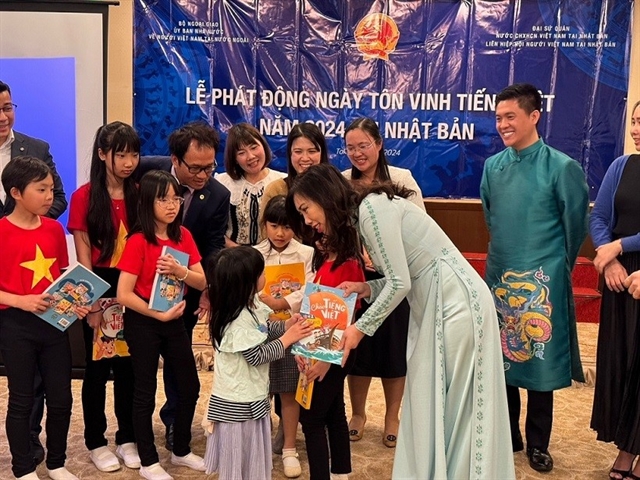 Society
Society

.JPG) |
| The 12th OpenTESOL International Hybrid Conference on May 25 at HCM City Open University highlights innovative approaches and leveraging technology in language education. — Photo courtesy of the HCM City Open University |
HCM CITY — One of the crucial aspects of language education is making it accessible to everyone by embracing innovative approaches and leveraging technology, experts said at a conference in HCM City last Saturday.
Reputable scholars in the field of English Methodology and Teaching on May 25 discussed the topic ‘Nurturing Open Minds, Shaping Inclusive Futures In Language Education’ during the 12th OpenTESOL International Hybrid Conference held by the HCM City Open University.
Prof. Dr. Nguyễn Minh Hà, president of the HCM City Open University, said that this year, the conference also emphasised that a crucial aspect of language education is cultivating an environment that fosters curiosity, critical thinking, and a willingness to embrace diverse perspectives.
The conference welcomed more than 300 scientists, managers, researchers, teachers, lecturers, graduate students, masters students, students majoring in English, Chinese and Japanese Teaching and Applied Linguistics of more than 150 universities, educational institutions and training institutions from more than 30 countries around the world.
It equipped the participants with the latest theories, practical strategies, and tools so that they can build classrooms “that are not only effective but also inclusive and empowering for a future where language learning opportunities reach everyone, regardless of geographical boundaries, socio-economic backgrounds, and abilities,” he said.
It also featured more than 60 presentations and papers on the topics of the application of artificial intelligence to personalise the learning experience and meet diverse learning needs; creativity and innovation in language teaching methods; and the impact of technology on language learning and teaching in the current context.
Dr. Nina Kang, a lecturer in Academic and Professional Writing and Coordinator of Assessment and Testing at the American Language Institute of the US-based University of Southern California, shared about adapting English language teaching practices in the era of Artificial Intelligence.
“The approaching use of AI for teaching needs clear expectations, and prompt design and engineering,” she said.
It is necessary to articulate to students what skills they’re learning for each assignment and how they’ll use the skills in a real word context.
She said trends in language learning include personalised learning, micro-learning (bite-sized learning in the form of videos, digital content), mobile learning (IMs, podcasts, Duolingo), gamification (Kahoot, Quizlet, WhatsApp), and extended learning (XR) (avatars, simulations via AR/VR).
The exciting possibilities of AI are personalised learning experience, adaptability (adaptive technology), improved feedback mechanism, increased access and support, and enhanced language practice.
“Educators must empower instructors and students, be inclusive and student-centred, and focus on literacy and fluency,” she said.
.JPG) |
| The 12th OpenTESOL International Hybrid Conferencs on May 25 at HCM City Open University attracts some 300 participants on-site and online. — Photo courtesy of the HCM City Open University |
Prof. Howard Nicholas, a lecturer at Latrobe University in Australia, said teaching and learning are intimately connected. "So we cannot talk about learner agency without first looking at teacher agency."
“Teacher agency sets the context for learner agency,” he said.
People are not born with a fixed or pre-determined amount of agency because of their genes or family circumstances.
“We can grow our own agency through the experiences that we have, and teachers can create opportunities and experiences through which learner agency can grow,” he said.
"When the students make a joke, they are being agentive. So teachers need to laugh with your students, be interested in the things that they are NOT saying, encourage them to ask another question. It’s as simple as that to promote agency,” he added.
The HCM City Open University is a higher education institution offering a variety of programmes ranging from on-site to distance, online learning and learning at satellite academic centres promoting a society with active learning by offering the most flexible and obtainable methods to enrich the country’s human resources.
It has hosted the OpenTESOL International Conference series annually since 2012.
Since then, the conference has always been a platform for continuous growth in language education, attracting both Vietnamese and international practitioners and researchers.
It offers a valuable platform for sharing effective teaching methods across diverse learning environments.
It fosters a network of educators and language professionals, and bridges the gap between local communities and international language education institutions and associations. — VNS




